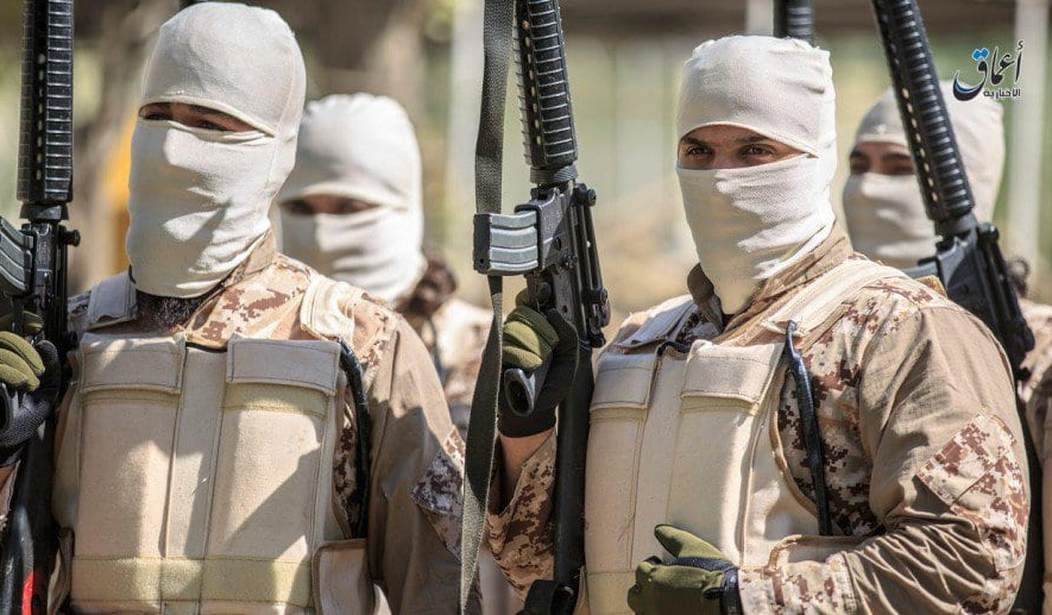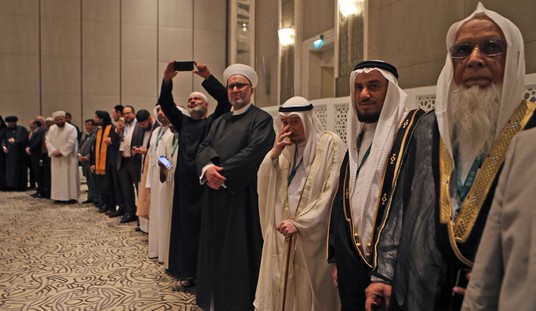The spokesman for U.S. operations in Iraq and Syria said the Islamic State capital of Raqqa is “not fully isolated by any means and not encircled but that’s what’s coming in the near future” — yet coalition partners will be trying to determine “who’s actually going to go in” to the ISIS stronghold as the time comes.
Col. John Dorrian, briefing reporters on Operation Inherent Resolve via teleconference from Baghdad today, said the Turkish-led Operation Noble Lance “has liberated approximately 50 villages to date… further isolating the areas in the northern in the north of Syria surrounding Raqqa.”
The previous op, Turkish-led Operation Euphrates Shield, “built a significant buffer along Syria’s Northern border, making it much more difficult for Daesh to infiltrate across the border into Europe.”
The Pentagon has said it wants a near-simultaneous operation against the Syrian ISIS stronghold as Iraq forces have made their way into Mosul, the largest city controlled by ISIS in Iraq. Last week, Lt. Gen. Stephen Townsend said the Raqqa op should be launched as soon as possible “because our intelligence feeds tell us that there is significant external operations attacks planning going on… centralized in Raqqa.”
Dorrian said ISIS “still has freedom of movement into and out of Raqqa…they don’t have the ability to move large troop formations, large convoys but they do have the ability to move into and out of the area.”
“What we’ve done to try to limit that is we’ve conducted a lot of strikes on their favored supply routes and infiltration routes, so we’ve done more than 100 strikes on that. We’re talking about roads — in order to limit their freedom of movement, make it take longer for them to move and move around the battlefield,” he said.
The U.S. is intending to press down on Raqqa from the north with the Syrian Democratic Forces, which are comprised of Kurdish, Assyrian, Arab, Circassian, Armenian and Turkmen militias. From the south, Dorrian said, “there are significant numbers of Arab forces in that area as well, and we intend to train as many of them as we possibly can.” Training “for people that have already been involved in some fighting before so they’re not just a bunch of rookies” can take as little as two weeks.
“We’ll continue to work with our partners in Syria and to continue to enlarge that force and create enough that we’ll be able to have that force encircle Raqqa. So that is the plan at this point,” he added.
“Right now I don’t think that all the forces that’ll be involved in that liberation campaign for Raqqa are yet trained. But that’ll be the part of the effort. As well, ongoing diplomatic discussions with our allies and our partners and coalition members to make sure that we get everybody on the same page and isolate Raqqa, and then move in at a time of our partner’s choosing.”
ISIS has “very limited freedom of movement” from west Mosul along their supply lines to Raqqa and back, he said, noting “they don’t have the ability to move in large columns.”
“We’re not seeing significant numbers of Daesh leaving the city or going in for that matter,” he said.
The spokesman stressed that in both the isolation and liberation phases of the Raqqa operation “there will probably be some very tough fighting to do.”
In Mosul, Dorrian said, “the Iraqis are largely on plan.”
“They’re able to advance on every axis. They’ve really taken it to Daesh, although Daesh continues to fight hard,” he said.
Since the battle for Mosul began, the U.S. has dropped “more than 3,000 munitions on Daesh targets.”
“So, we’re talking about a couple of hundred fighting positions. We’re talking about, you know, hundreds of fighters. We’re talking at about scores of vehicle-born improvised explosive devices. We’re talking about scores of tunnels that Daesh used to create freedom of movement in localized areas. So all those obstacles have been reduced. They haven’t all been taken away because it would be virtually impossible to do that with Daesh having been in this area for two years with chances to build these elaborate defenses,” Dorrian continued.
“But there’s no question that it’s very impactful and it makes a big difference. So we’re very proud of that work.”









Join the conversation as a VIP Member